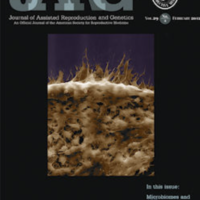
« Mapping ethical, legal, & social implications (ELSI) of assisted reproductive technologies »
Nouvel article intitulé « Mapping ethical, legal, & social implications (ELSI) of assisted reproductive technologies » d’Ido Alon, Zacharie Chebance, Francesco Alessandro Massucci, Theofano Bounartzi et Vardit Ravitsky, dans Journal of Assisted Reproduction and Genetics.
Résumé
Purpose A signifcant portion of the research on assisted reproductive technologies explores ethical, legal, and social impli-
cations. It has an impact on social perceptions, the evolution of norms of clinical practices, regulations and public funding.
This paper reviews and maps the geographical distribution to test the hypothesis of geographical concentration and classifes the output by felds and topics.
Methods We queried PubMed, Scopus and the Web of Science for documents published between 1999 and 2019, excluding clinical trials and medical case reports. Documents were analyzed according to their titles, abstracts and keywords and were classifed to assisted reproductive felds and by Topic Modeling. We analyzed geographic distribution.
Results Research output increased nearly tenfold. We show a trend towards decentralization of research, although at a slower rate compared with clinical assisted reproduction research. While the U.S. and the U.K.’s share has dropped, North America and Western Europe are still responsible for more than 70%, while China and Japan had limited participation in the global discussion. Fertility preservation and surrogacy have emerged as the most researched categories, while research about genetics was less prominent.
Conclusions We call to enrich researchers’ perspectives by addressing local issues in ways that are tailored to local cultural values, social and economic contexts, and diferently structured healthcare systems. Researchers from wealthy centers should conduct international research, focusing on less explored regions and topics. More research on fnancial issues and access is required, especially regarding regions with limited public funding.



